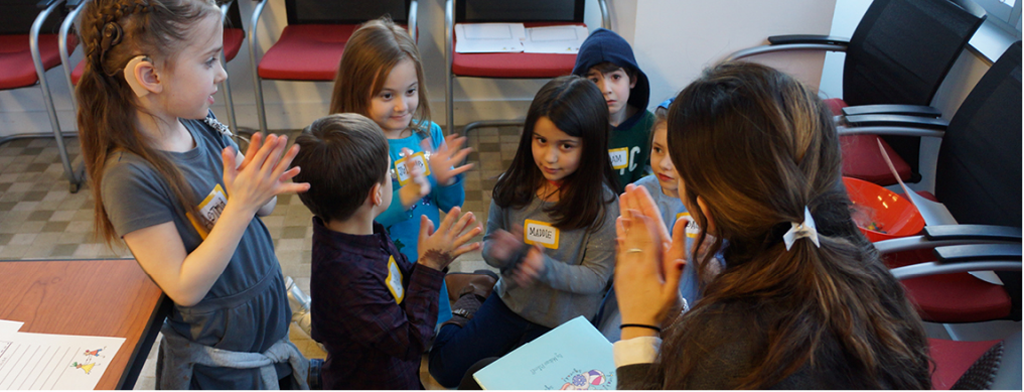CHI brings together a community of children, families, doctors, audiologists, speech therapists, and teachers together with events, conferences and social gatherings in which the most current information is shared, and learning is facilitated.
The heart of what we do
At the center of our work is a child with hearing loss, and his or her family. We understand that the system can seem overwhelmingly complex and confusing as you navigate through a vast range of devices that may or may not address your child’s specific needs, and the many different ways he or she might be able to interpret sound and communicate. We have provided a Parent’s Resource Page to familiarize yourself with hearing loss terms and frequently asked questions. This will help address parental needs, both as you first learn your child has hearing loss, and along your journey to provide the best care for your child’s happy and fulfilled life. If you are unable to find answers to your questions or concerns, please contact our office at (212) 257-6138 and we will be happy to assist you in any way we can.
Hearing loss and your familiy
Hearing loss issues does not discriminate – it affects the entire family. It is important to understand the psychological effects hearing loss can have on not only the child, but siblings and parents as well. You must try to comprehend how hearing loss affects identify, social interaction, and emotional wellbeing so parents, professionals, and other can help families adjust to their circumstances. It is well documented that even under regular circumstances, coping with academic, social, and physical situations as a teenager with typical hearing can be very challenging in today’s world. It is even more challenging for a student with hearing loss where communication is critical to socializing.
Workshops for children
To address this need, CHI hosts a series of workshops to connect students with hearing loss from multiple programs and connect them with peers and mentors. These workshops will provide them with exciting, structured events to help them develop specific skill sets for building self-advocacy, socialization skills, leadership and teamwork skills, public speaking and ultimately, encouragement in becoming a more active participating in their communities.


